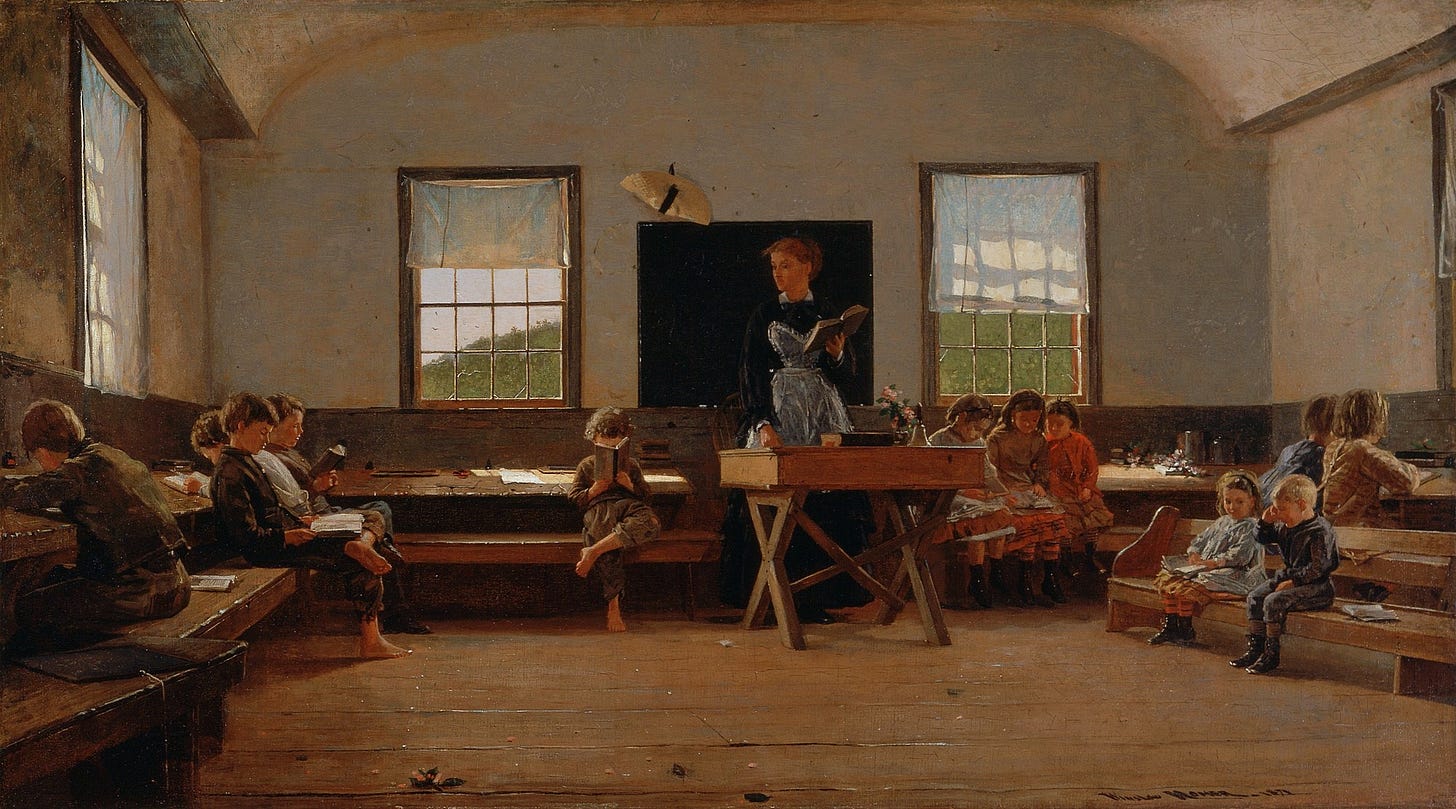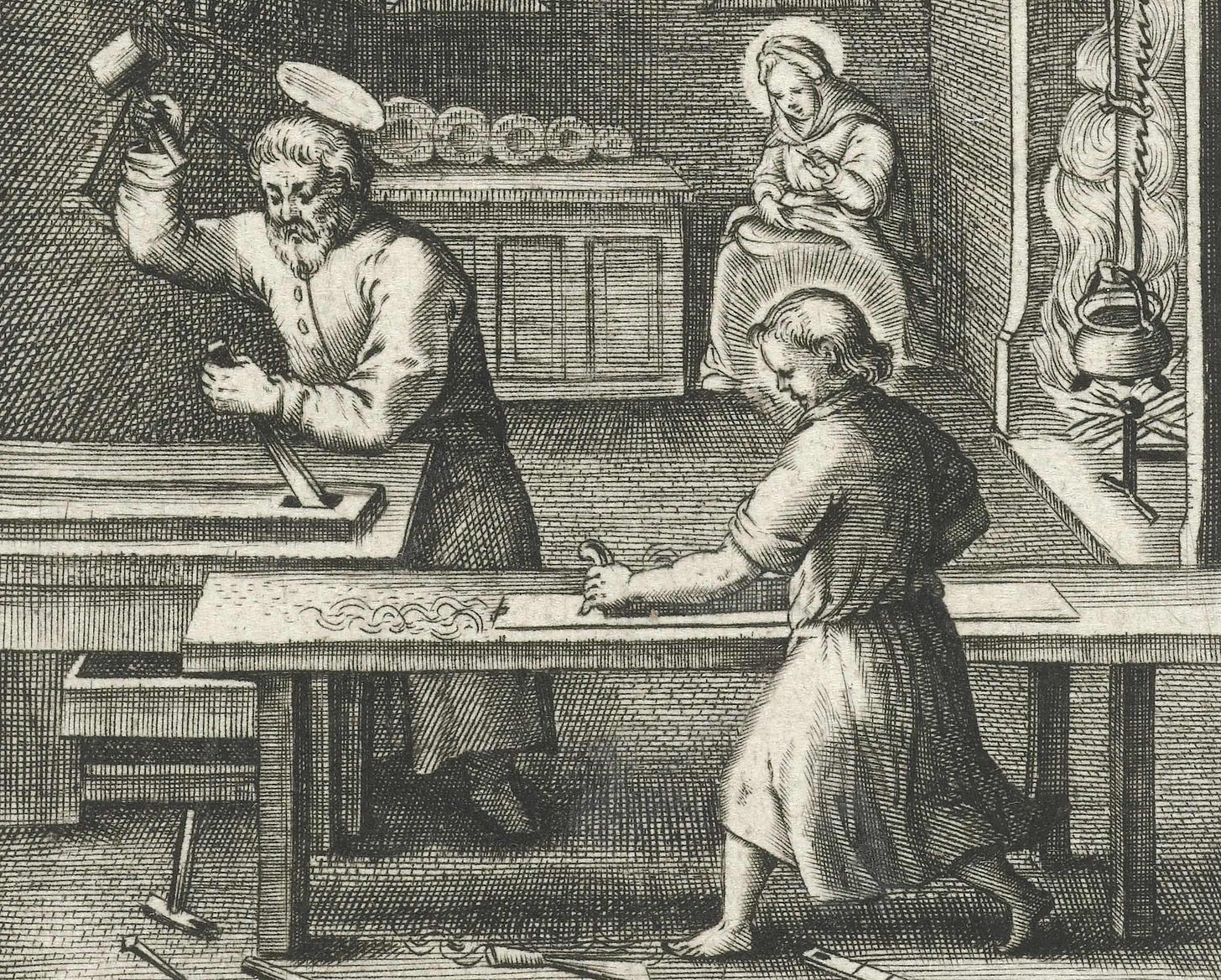Ancient Education and Modern Regression: Perfect Man, Imperfect Child
The cult of the unformed child vs. the aspiration to maturity in virtue

There is a profound difference between the ancient/medieval view of children and the modern cult of the child. The Rousseauean idolatry of nature and worship of “noble savages,” popularized through a certain brand of sentimental poetry, helped to establish a picturesque ideal of innocent, angelic childhood.
St. Augustine was not inclined to hold the same view. For him, the anger, mischievousness, impatience, and selfishness of little children were so many signs that human nature is not inherited free of the effects of Adam’s sin. The modern emphasis on letting children “be themselves,” as well as rhetoric about “recovering one’s childhood,” belie a rosy estimation of the innate goodness of man.
Once the doctrine of original sin had largely been eradicated from the daily mindset of Catholics as well as Protestants, it was inevitable that shrines be erected to The Child, Nature’s favorite, a piece of charming fantasy confirmed in the popular mind by Victorian paintings of an effeminate Jesus caressing the golden locks of cherubic ten-year-olds.
The gradual shift from the Christ-Child, who deserves our reverence, to The Child can be seen in some of Wordsworth’s verses and those of other Romantics who profess the innocence of the “man of nature” and the perfectibility of the human species. In our age of educational Rousseauianism, which still embraces these fanciful theories and even pushes them further, it may be worthwhile to consider the more realistic views of our ancestors.

An imperfect starting point with great potential
The ancients and medievals saw the child as an imperfect starting-point and the adult as mature, meaning capable of activities of moral and intellectual perfection. Only an adult can appreciate the good, the true, and the beautiful as such; a child feels their vibrations in his imagination without apprehending what they are or why they should be as they are. The child’s psyche exhibits a paradox: in itself, it is somewhat superficial because undeveloped; but it is also supremely absorbent, possessing an almost magical power of assimilation, of internalizing the external.
When Christ tells us to imitate the child, he is clearly pointing to the latter quality. Christians should strive to be receptive to God’s word, ready to do His will, even as a child receives trustingly and eagerly whatever is given him, and acts upon what he acquires. This duality in the child’s psyche explains why both Aristotle and Nietzsche, as different as are their views on almost every other subject, agree in emphasizing the role of training in education: the child forms habits long before he understands the meaning and importance of habit.
To take an important example, a small child, simply of himself, is not capable of discriminating between good and bad music. He will grow accustomed to any sounds to which he is subjected, because they are all novel to him and he is greedy to exercise the powers of sensation. Hence, a child can learn to love Mozart’s music long before he is capable of appreciating it. His sensitive soul becomes Mozartian, so to speak, while his consciousness remains ignorant of the nature of the music absorbed.
Keep reading with a 7-day free trial
Subscribe to Tradition and Sanity to keep reading this post and get 7 days of free access to the full post archives.


